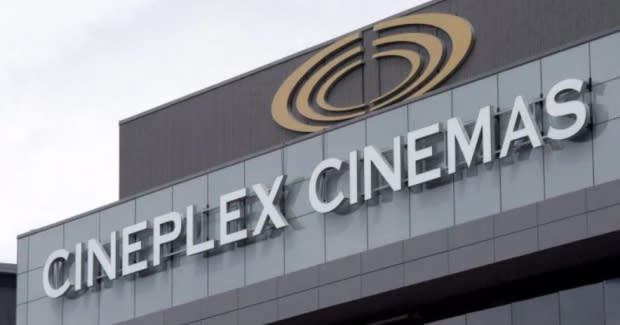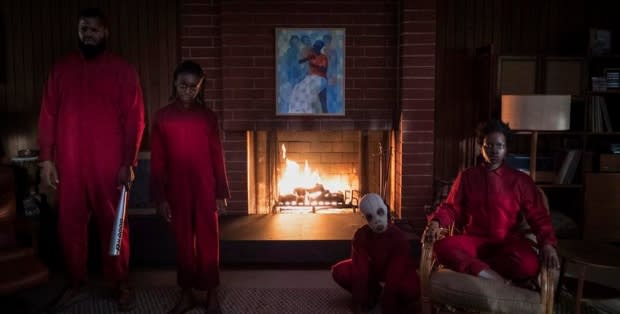Calls for open captions at movies after Saskatoon man's experience
A Saskatoon man is hoping for change after a movie experience was less than thrilling.
Adam Pottle is a deaf playwright in Saskatoon. On Friday, March 24 he went to see the horror movie "Us" at the Saskatoon Cineplex.
"I'm a huge horror fan," Pottle said.
Pottle said the film was advertised as closed captioned so he asked for a CaptiView machine for captioning.
"It's a strange-looking contraption with a base that sits in the drink holder and a small screen with green letters that sits at the end of a bendy arm."

When the previews started, no captions appeared on the screen. Pottle said that can be typical and often the captions don't start until the film does.
"Then "Us" started. No captions. I waited. No captions showed. I pushed the buttons on the machine to try and catch a signal. Still no captions," Pottle said.
Pottle said he thought about leaving to complain but didn't want to miss more, as he had been waiting for months to see the film. After the movie ended, Pottle said he spoke to the manager who told him captions must not have been available.
He was offered a free pass but said if the captioning is not working, then a free pass is useless, and left.
"I left the theatre livid. I'd been robbed of experiencing a film that by all accounts is a modern horror masterpiece," he said. "And I wanted to enjoy their work on equal ground as my hearing peers."

Cineplex Theatres said in an emailed statement they were 'disappointed to hear about' Pottle's experience.
"I was also able to circle back with the local management team and they are currently investigating the situation," Cineplex spokesperson Sarah Van Lange said.
Van Lange said Adam Pottle may have been given a faulty unit. She said Cineplex tests their units nation-wide on Fridays but with technology there can be glitches from time to time.
"Both closed captioning and described video are available for the movie "Us", so the manager who Mr. Pottle spoke with after the film yesterday was incorrect as closed captioning is available for the film," she said.
Cineplex takes these concerns very seriously, she said, and offered her apologies.
"We clearly fell short," she said.

This isn't the first time something like this has happened, Pottle said, and it hasn't happened just to him.
"Thousands of deaf people across Canada and millions around the world experience this same thing," Pottle said.
Pottle suggests theatres offer open captions, meaning captions would appear on the projection screen with the film. For Pottle, open captions would mean "everything."
"It'd mean that I'm being taken seriously as a patron and as a human being. It'd mean that the theatre actually wants deaf people there," he said.
"Deaf and disabled people are one of the largest untapped cultural markets on the planet, and the first theatres to truly recognize that will be rolling in the dough," he said.

Pottle said change doesn't really happen until hearing and able people support those who are deaf or hard of hearing. If filmmakers and actors demanded changed and people stopped going to theatres, change would happen fast, he said.
"That hasn't happened yet, and that's because of apathy, of people saying 'It's not my problem,'" he said.
"But that's wrong. Captioning helps everyone, not just deaf people. As I've discovered since sending out that Twitter thread, many hearing people love captions," Pottle said.
It can help people watching fast-paced films, those who are learning English and when actors mumble, Pottle said.
"I'm hopeful about deaf and disabled people's resolve to push for change. I'm skeptical about hearing and able people's ability to support our efforts. But I've been proven wrong before."

